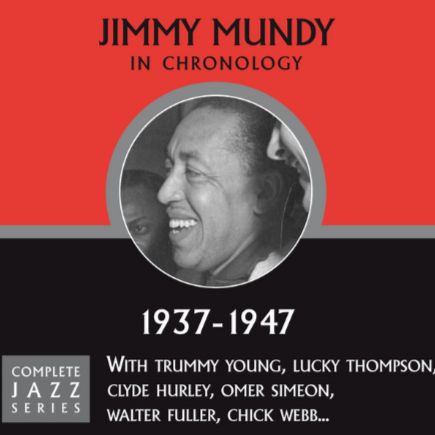Ain’t Misbehavin’: Fats Waller, Harlem et l’affirmation d’un art
Une chanson au cœur de la Harlem Renaissance
Composée en 1929 par Fats Waller et Harry Brooks, sur des paroles d’Andy Razaf, Ain’t Misbehavin’ dépasse le simple cadre du succès populaire. Pensée comme numéro d’ouverture de la revue Connie’s Hot Chocolates, présentée au Connie’s Inn, elle s’inscrit pleinement dans l’effervescence de la Harlem Renaissance. Dans un contexte de créativité afro-américaine intense, la chanson affirme une ambition artistique claire, en dialogue avec les grandes scènes new-yorkaises, notamment face au Cotton Club.
Écriture musicale et portée symbolique
Ain’t Misbehavin’ séduit par l’alliance d’une mélodie immédiatement mémorisable et d’harmonies raffinées, caractéristiques du style stride dont Waller est l’un des représentants majeurs. Le texte, centré sur la fidélité amoureuse face aux séductions urbaines, dépasse son époque. Cette tension entre légèreté apparente et sophistication musicale contribue à faire du morceau un emblème durable du jazz vocal, régulièrement réinterprété.
Louis Armstrong et le tournant décisif
Le destin du titre bascule lors des représentations au Hudson Theater, lorsqu’un jeune Louis Armstrong est invité à doubler l’orchestre de Leroy Smith. D’abord reléguée à la fosse, son intervention entre les actes devient le moment fort du spectacle. Saluée par le New York Times, cette prestation conduit à son intégration sur scène et marque une étape décisive vers une reconnaissance nationale durable.
L’élégance orchestrale du swing en miniature
Enregistrée le 3 mars 1937 à New York, la version de Ain’t Misbehavin’ signée Jimmy Mundy and His Swing Club Seven illustre à merveille la finesse et la vitalité du swing à son apogée. Jimmy Mundy démontre ici, à la tête d’un ensemble réduit, sa capacité à condenser l’énergie du big band dans une formation plus intime, sans rien sacrifier de la richesse harmonique, ni du sens du détail.
Aux côtés de Mundy au saxophone ténor, on retrouve Billy Kyle au piano, Walter Fuller à la trompette et au chant, Trummy Young au trombone, Omer Simeon à la clarinette, Dick Palmer à la guitare, Quinn Wilson à la contrebasse et Chick Webb à la batterie, une équipe qui illustre l’excellence du jazz new-yorkais de la fin des années 1930.
Dans cette interprétation de Ain’t Misbehavin’, l’arrangement de Mundy équilibre subtilement le dialogue entre les sections, jouant sur les contrastes entre le moelleux du saxophone et la clarté de la trompette, entre la souplesse rythmique et la précision du phrasé. Walter Fuller, à la fois chanteur et trompettiste, apporte une dimension chaleureuse et populaire à l’ensemble, tandis que la batterie nerveuse de Chick Webb insuffle une pulsation irrésistible.
Ain’t Misbehavin’: Fats Waller, Harlem y la afirmación de un arte
Una canción en el corazón del Renacimiento de Harlem
Compuesta en 1929 por Fats Waller y Harry Brooks, con letra de Andy Razaf, Ain’t Misbehavin’ supera el marco del éxito popular. Concebida como número de apertura de la revista Connie’s Hot Chocolates, presentada en el Connie’s Inn, se inscribe plenamente en la efervescencia del Renacimiento de Harlem. En un contexto de intensa creatividad afroamericana, la canción afirma una ambición artística clara, en diálogo con las grandes escenas neoyorquinas, especialmente frente al Cotton Club.
Escritura musical y alcance simbólico
Ain’t Misbehavin’ seduce por la combinación de una melodía inmediatamente reconocible y armonías refinadas, propias del estilo stride del que Waller es figura clave. La letra, centrada en la fidelidad amorosa frente a las tentaciones urbanas, trasciende su época. Esta tensión entre ligereza aparente y sofisticación musical convierte la obra en un emblema duradero del jazz vocal.
Louis Armstrong y el punto de inflexión
El destino del tema cambia durante las funciones en el Hudson Theater, cuando un joven Louis Armstrong es invitado a reforzar la orquesta de Leroy Smith. Inicialmente relegado al foso, su intervención entre actos se convierte en el momento culminante del espectáculo. Elogiada por el New York Times, esta actuación impulsa su reconocimiento nacional y consolida definitivamente el lugar de Ain’t Misbehavin’ en la historia del jazz.
La elegancia orquestal del swing en miniatura
Grabada el 3 de marzo de 1937 en Nueva York, la versión de Ain’t Misbehavin’ firmada por Jimmy Mundy and His Swing Club Seven ilustra a la perfección la finura y la vitalidad del swing en su apogeo. Jimmy Mundy demuestra aquí, al frente de un conjunto reducido, su capacidad para condensar la energía de una big band en una formación más íntima, sin sacrificar la riqueza armónica ni el sentido del detalle.
Junto a Mundy en el saxofón tenor, encontramos a Billy Kyle en el piano, Walter Fuller en la trompeta y voz, Trummy Young en el trombón, Omer Simeon en el clarinete, Dick Palmer en la guitarra, Quinn Wilson en el contrabajo y Chick Webb en la batería, un equipo que encarna la excelencia del jazz neoyorquino de finales de los años treinta.
En esta interpretación de Ain’t Misbehavin’, el arreglo de Mundy equilibra sutilmente el diálogo entre las secciones, jugando con los contrastes entre la suavidad del saxofón y la claridad de la trompeta, entre la flexibilidad rítmica y la precisión del fraseo. Walter Fuller, tanto cantante como trompetista, aporta una dimensión cálida y popular al conjunto, mientras que la batería enérgica de Chick Webb insufla una pulsación irresistible.
Ain’t Misbehavin’: Fats Waller, Harlem e l’affermazione di un’arte
Una canzone al cuore della Harlem Renaissance
Composta nel 1929 da Fats Waller e Harry Brooks, su testo di Andy Razaf, Ain’t Misbehavin’ va oltre il semplice successo popolare. Pensata come numero d’apertura della rivista Connie’s Hot Chocolates, presentata al Connie’s Inn, si colloca pienamente nell’effervescenza della Harlem Renaissance. In un contesto di forte creatività afroamericana, la canzone afferma un’ambizione artistica chiara, in dialogo con le grandi scene newyorkesi, in particolare con il Cotton Club.
Scrittura musicale e valore simbolico
Ain’t Misbehavin’ colpisce per l’equilibrio tra una melodia immediatamente riconoscibile e armonie raffinate, tipiche dello stile stride di cui Waller è protagonista. Il testo, incentrato sulla fedeltà amorosa di fronte alle seduzioni urbane, supera il proprio tempo. Questa tensione tra apparente leggerezza e sofisticazione musicale rende il brano un emblema duraturo del jazz vocale.
Louis Armstrong e la svolta decisiva
Il destino del brano cambia durante le rappresentazioni all’Hudson Theater, quando un giovane Louis Armstrong viene invitato a rinforzare l’orchestra di Leroy Smith. Inizialmente relegato in buca, il suo intervento tra un atto e l’altro diventa il momento centrale dello spettacolo. Lodato dal New York Times, questo episodio segna una tappa decisiva verso il riconoscimento nazionale e consacra Ain’t Misbehavin’ nella storia del jazz.
L’eleganza orchestrale dello swing in miniatura
Registrata il 3 marzo 1937 a New York, la versione di Ain’t Misbehavin’ firmata da Jimmy Mundy and His Swing Club Seven illustra alla perfezione la finezza e la vitalità dello swing al suo apice. Jimmy Mundy dimostra qui, alla guida di un ensemble ridotto, la sua capacità di condensare l’energia della big band in una formazione più intima, senza rinunciare alla ricchezza armonica né al senso del dettaglio.
Accanto a Mundy al sax tenore troviamo Billy Kyle al pianoforte, Walter Fuller alla tromba e voce, Trummy Young al trombone, Omer Simeon al clarinetto, Dick Palmer alla chitarra, Quinn Wilson al contrabbasso e Chick Webb alla batteria: una formazione che rappresenta l’eccellenza del jazz newyorkese della fine degli anni Trenta.
In questa interpretazione di Ain’t Misbehavin’, l’arrangiamento di Mundy equilibra con finezza il dialogo tra le sezioni, giocando sui contrasti tra la morbidezza del sax e la chiarezza della tromba, tra la flessibilità ritmica e la precisione del fraseggio. Walter Fuller, cantante e trombettista, conferisce all’insieme una dimensione calda e popolare, mentre la batteria energica di Chick Webb infonde una pulsazione irresistibile.
Ain’t Misbehavin’: Fats Waller, Harlem, and the assertion of an art
A song at the heart of the Harlem Renaissance
Composed in 1929 by Fats Waller and Harry Brooks, with lyrics by Andy Razaf, Ain’t Misbehavin’ goes beyond mere popular success. Conceived as the opening number of Connie’s Hot Chocolates, staged at Connie’s Inn, it fully belongs to the vibrant context of the Harlem Renaissance. In a period of intense African-American creativity, the song asserts a clear artistic ambition, engaging directly with New York’s major stages, notably in contrast to the Cotton Club.
Musical writing and symbolic reach
Ain’t Misbehavin’ captivates through the balance between an instantly memorable melody and refined harmonies, characteristic of the stride style in which Waller was a leading figure. The lyrics, focused on romantic fidelity amid urban temptations, resonate far beyond their time. This tension between apparent lightness and musical sophistication has made the song a lasting emblem of vocal jazz.
Louis Armstrong and the decisive turning point
The song’s destiny shifted during performances at the Hudson Theater, when a young Louis Armstrong was invited to reinforce Leroy Smith’s orchestra. Initially confined to the pit, his between-acts performance quickly became the highlight of the show. Praised by The New York Times, this moment led to his inclusion on stage and marked a decisive step toward national recognition, securing Ain’t Misbehavin’ a permanent place in jazz history.
The orchestral elegance of swing in miniature
Recorded on March 3, 1937, in New York, the Ain’t Misbehavin’ version by Jimmy Mundy and His Swing Club Seven perfectly captures the finesse and vitality of swing at its peak. Here, Jimmy Mundy demonstrates his ability to distill the power of a big band into a smaller ensemble, without losing harmonic richness or attention to detail.
Alongside Mundy on tenor saxophone are Billy Kyle on piano, Walter Fuller on trumpet and vocals, Trummy Young on trombone, Omer Simeon on clarinet, Dick Palmer on guitar, Quinn Wilson on bass, and Chick Webb on drums—a lineup that embodies the excellence of late-1930s New York jazz.
In this rendition of Ain’t Misbehavin’, Mundy’s arrangement delicately balances dialogue between sections, playing on contrasts between the warmth of the saxophone and the brightness of the trumpet, between rhythmic suppleness and phrasing precision. Walter Fuller, both vocalist and trumpeter, adds a warm, popular touch to the ensemble, while Chick Webb’s driving drums give the performance an irresistible pulse.
Autres articles – Otros artículos – Altri articoli
Ain’t Misbehavin’–19.07.1929–Louis ARMSTRONG
Ain’t Misbehavin’–02.08.1929–Fats WALLER
Ain’t Misbehavin’–13.07.1933–Duke ELLINGTON
Ain’t Misbehavin’–09.07.1935–Paul WHITEMAN & Jack TEAGARDEN
Ain’t Misbehavin’–22.04.1937–Django REINHARDT
Ain’t Misbehavin’–xx.05-06.1938–Jelly Roll MORTON
Ain’t Misbehavin’–xx.xx.1944–Art TATUM
Ain’t Misbehavin’–18.05.1950–Sarah VAUGHAN
Ain’t Misbehavin’–xx.10.1955–Johnny HARTMAN


